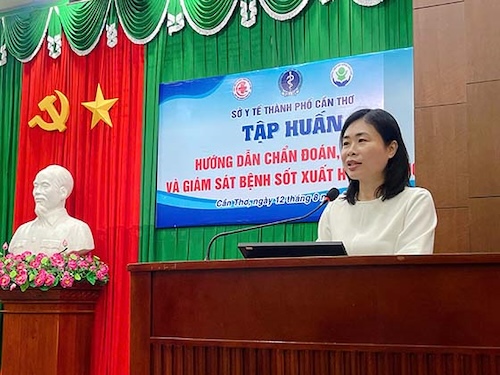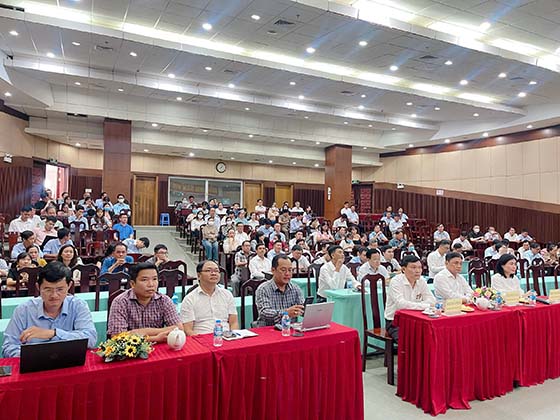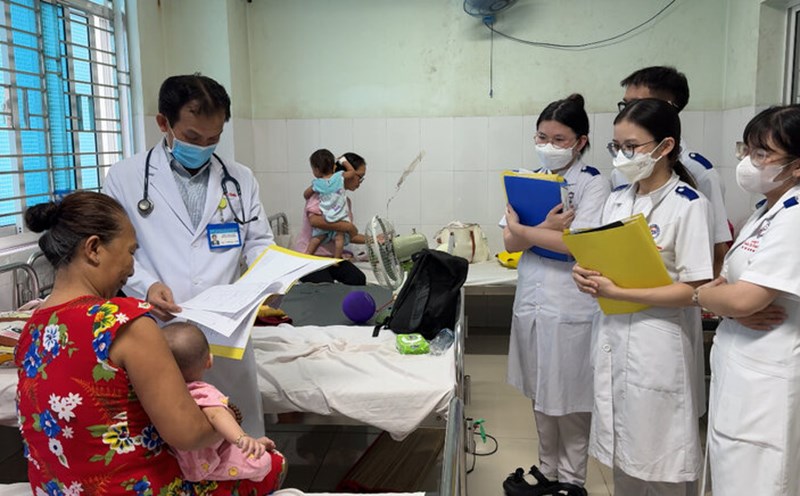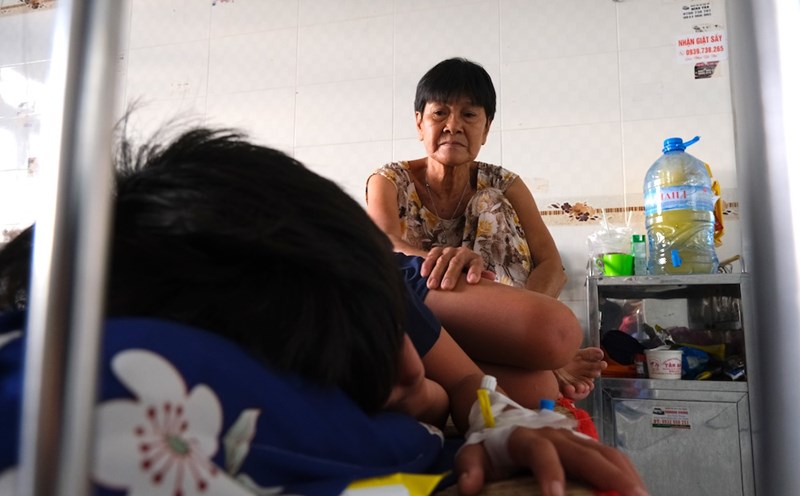Can Tho Department of Health informed that in the context of increasing dengue fever cases, the Department organized a training course to guide diagnosis, treatment and supervision of this disease for 45 affiliated medical facilities in the city on August 12. Ms. Nguyen Ngoc Viet Nga, Deputy Director of the Department of Health chaired.

At the training course, delegates listened to Mr. Pham Van Quang, Head of the Intensive Care - Anti-Poison Department, Ho Chi Minh City Children's Hospital No. 1; Mr. Phan Vinh Tho, Head of the Infection Department, Ho Chi Minh City Tropical Hospital and reporters from the Can Tho City Center for Disease Control (CDC Can Tho), Can Tho Children's Hospital updated the situation of dengue fever in the city and the Southern region.
Along with that are instructions on decentralizing treatment and transferring safe medical examination and treatment facilities for children with dengue fever; updating treatment and points to note about dengue fever in children; some notes in managing dengue fever in adults;...

According to the infectious disease monitoring system, Can Tho City (including Can Tho, Hau Giang, and the old Soc Trang) has recorded 1,431 cases of dengue fever, without recording any deaths.
In the Can Tho area (old), 663 cases were recorded, an increase of 1.9 times over the same period in 2024; there were 292 outbreaks, an increase over the same period.
In Hau Giang area (old), 118 cases were recorded, down 4.1% over the same period; 19 small outbreaks were recorded, down 40.6% over the same period in 2024.
In the old Soc Trang area, 650 cases were recorded, an increase of 18 cases compared to the same period; 333 outbreaks were recorded, a decrease of 22 outbreaks compared to the same period.

Mr. Le Phuc Hien - Head of the Department of Infectious Disease Prevention - International Health Quarantine, CDC Can Tho - informed that dengue fever is a disease that circulates all year round. During the changing seasons, the weather is often humid, with interspersed rain and sun, making rainwater easily stagnate in household items such as flower pots, old tires, bottles, rollers, mosquito larvae... an ideal environment for disease-carrying mosquitoes and larvae to thrive.
Dengue prevention work requires the coordination and proactiveness of departments, branches, and organizations, in addition to maintaining regular and continuous grassroots health forces to monitor insects.











